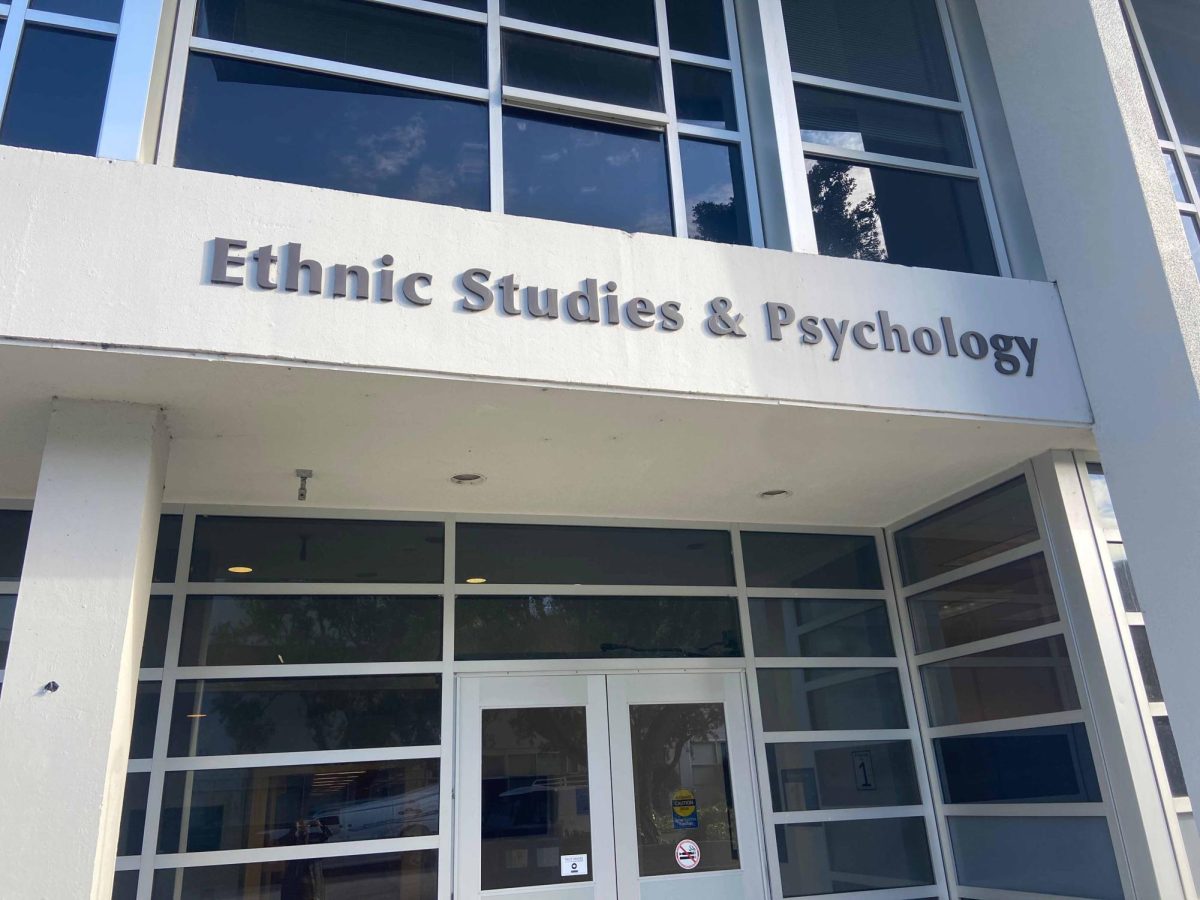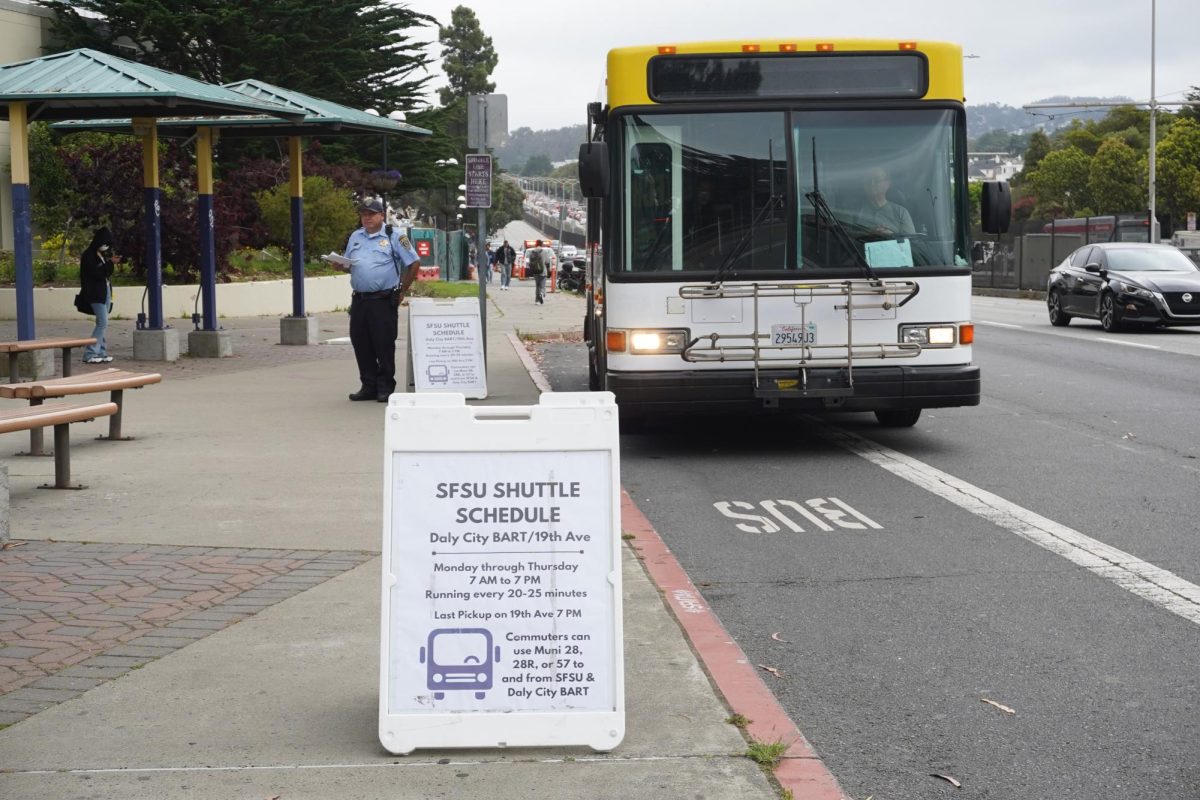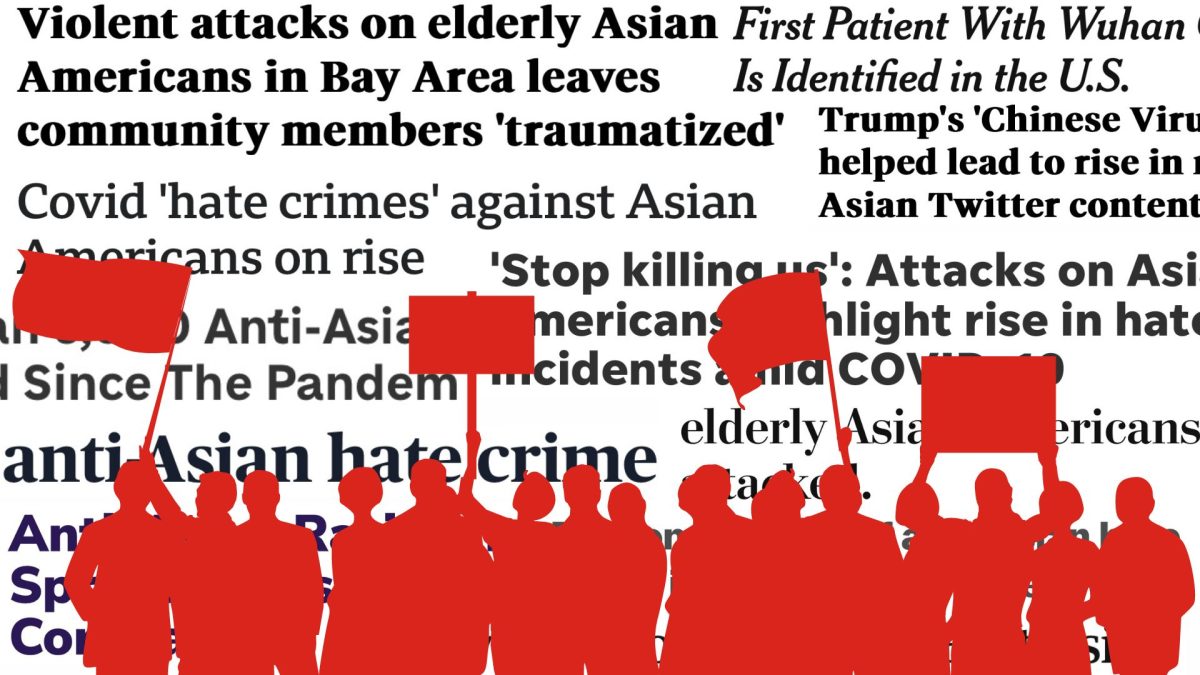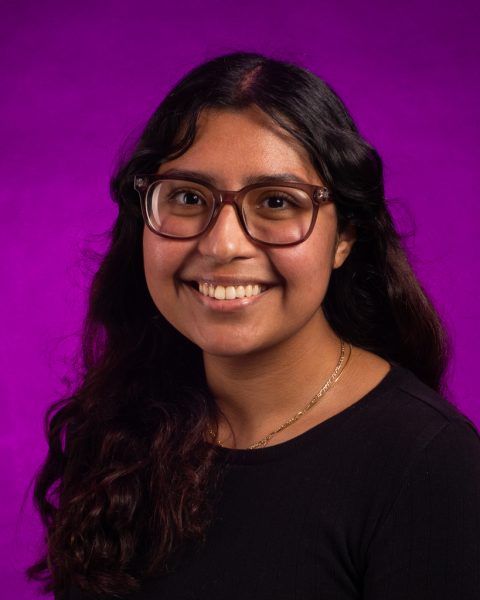If one were to ask San Francisco State University lecturer Larry Salomon his perspective on the significance of the College of Ethnic Studies to students, he would describe it as an oasis — not the kind found in a desert, but one of refuge, where students can feel welcome on a campus that sometimes feels impersonal.
“You come to campus, you go to work, you come here, you go to your job, then you maybe have a little bit of a social life if you’re lucky,” Salomon said. “But at least with ethnic studies — those of us who make ourselves available to students — we take pride in making sure we are that place for them to have a community.”
Salomon began teaching 30 years ago and is part of the Race and Resistance Studies program within the college. Throughout his time at SFSU, he’s seen noticeable changes within and outside the college due to various factors, the most recent being the COVID-19 pandemic — and now, the impending enrollment issues.
While SFSU slowly transitions into a smaller campus amidst challenges with budget cuts and decreasing enrollment — which is down by 21%, according to the University Budget Committee — the question of how the College of Ethnic Studies will navigate this crisis comes to a head for many faculty and students within the department.
Salomon said his primary concern is the potential cessation of class offerings, fearing it may diminish students’ interest in engaging with ethnic studies.
“I’m hoping that the move to a smaller university, whatever that’s going to look like, doesn’t ruin our commitment to teaching,” Salomon said.
Michael De Anda Muñiz, who joined the College of Ethnic Studies as an assistant professor in Latino/Latina Studies in 2020, expressed concern with the current enrollment issues they’re facing but is also aware that it’s representative of a problem other campuses face.
“All universities operate under a kind of numbers game,” Muñiz said. “Being a smaller college, that formula doesn’t work out well for us in the end because if our funding and resources are based on our numbers, and we have small numbers, that’s going to translate to smaller resources.”
Muñiz originally studied sociology throughout his college career and didn’t plan to go on to teach ethnic studies. But he said he often found that sociology didn’t answer questions about how to move forward with the knowledge he had acquired.
Early on in his graduate training, Muñiz became interested in ethnic studies because he found that scholars in the field were talking about topics he cared about and using their production of knowledge to inform action. As a result, he became aware of the College of Ethnic Studies’ legacy at SFSU due to its unique position.
The College of Ethnic Studies at SFSU holds the legacy of being the first of its kind in the nation. Established after the 1969 student strike, specific demands from protesters about the university’s lack of inclusion in their curriculum led to the establishment of four departments: American Indian studies, Black studies, Asian American studies and La Raza studies. Since then, the college has expanded to include numerous diverse courses and departments.
“When the job call came that there was an opening for somebody that does what I do, it was really exciting,” Muñiz said. “For me, it’s about the ways that ethnic studies challenges the traditional ways that academia operates. It’s not just about including more voices, but rather that we should reimagine what the point is of higher education and what’s the point of education in the first place.”
Olympia Pereira, an Africana studies major, shared a similar experience. She said that the department’s legacy pushed her to choose SFSU when transferring from Chabot College last spring.
“I personally have always really enjoyed activism and advocating for my community, myself and my peers,” Pereira said. “I think the resilience and the spirit of ethnic studies really does speak for itself [here].”
Pereira was personally impacted by the lack of courses offered due to the university’s decreasing enrollment and resources. This limits what she can study. Many of the courses she needs to take in Africana studies, which she says are foundational to her learning, are no longer being offered.
“We have made some changes to our course offerings due to a decrease in student numbers,” said Grace Yoo, dean of the College of Ethnic Studies. “We had to reduce the number of sections offered as some courses had low enrollment in the past. However, we have now adjusted our scheduling to offer the number of courses appropriate for the number of students, and we are seeing that these courses are filling up well.”
While Pereira is aware of the negative context surrounding the university’s new changes, she hopes the College of Ethnic Studies will remain relevant.
“It’s obvious that it’s going to be a real fight to be able to maintain the programs at the capacity in which it has been in the past, but with the proper advocacy and collective work, I see nothing but a positive future for the college,” Pereira said.
Muñiz shared a similar sentiment.
“Sometimes it’s a compliment and sometimes it’s not, but in our college we’ve learned to do a lot with very little, and I think nobody wants to have fewer resources than they need,” Muñiz said. “But in those situations, it really pushes you to be innovative and to really think outside the box. It’s what we’ve [the college of ethnic studies] have always done.”
Yoo believes that the college will remain SFSU’s beating heart, a feeling shared by SFSU President Lynn Mahoney.
“SF State’s College of Ethnic Studies was the first of its kind in the nation and remains a source of pride and strength,” said Mahoney in an email statement. “All our colleges and administrative units are working together to align expenses and with current enrollment in ways that will support our students’ academic progress toward graduation.”









Ermie Brill, SF State Strike emeritus BA 72 MA 76 on Chester Himes • Apr 9, 2024 at 5:54 am
I am one the “founders” and veterans of the San Francisco State Strike where I was very active especially in changing the English Department curriculum which had around fifty courses, 500 books, two African American writers, and no Latino-American,Native American, or Asian American writers.
The Strike transformed my life. I taught high school English and Creative Writing for twenty three years,and brought in the omitted greats of American literature, with a different cannon whose insight and brilliance could hopefully show the world the oceans they’d been missing, writers like Sterling A.Brown, Gwendolyn Brooks, Toshio Mori, John Okada, Pedro Petri.
All your facult and students should also know about the two leading literature organizations today-Cave Canem, a network of African American writers an Kundiaman, a network ofAsianAmerica writers, along with El Crupo Noemi an flowersongpress(they did the sizzzling anthology in 2021 Good Cop Bad Cop ). These networks help writers in college and MFa programs with mentorships, scholarships, award.
And if the Ethnc Studies Department is short on money, I suggest you all sstart applying to the big fooundations for money and plan some fundraising eves.